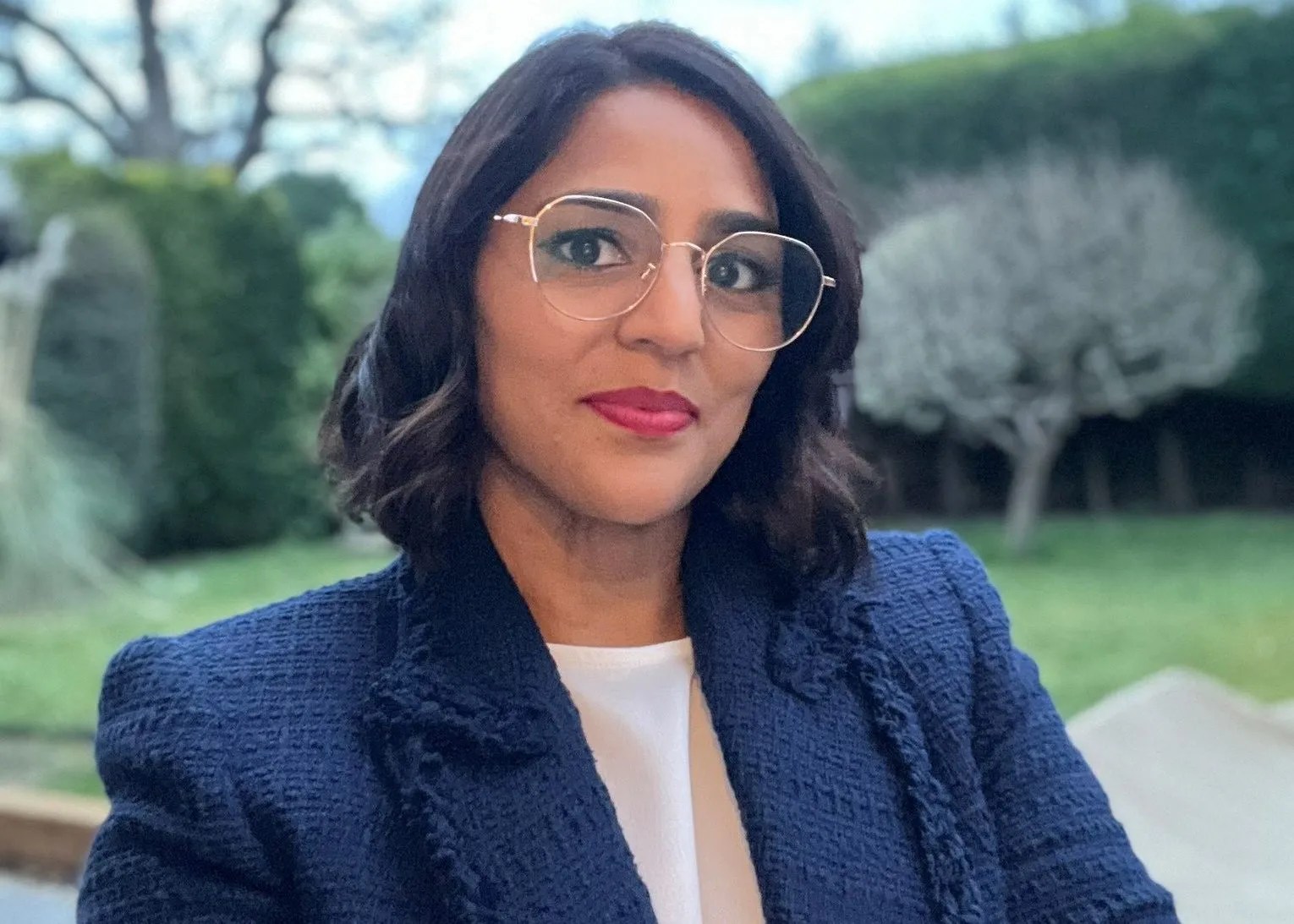
I SPENT ALMOST THREE YEARS TRYING TO FIND OUT WHAT WAS CAUSING MY PAIN
Anita Guru was diagnosed with endometriosis when she was 33.
She was struggling to get pregnant, alongside experiencing regular discomfort in her pelvis, a ‘twisting/burning pain’ in her abdomen and intensely painful periods.
It took her almost three years to uncover what was causing her pain – and she was only diagnosed when doctors agreed to proceed with laparoscopic surgery as a ‘last resort’ to decipher whether there was something in her digestive system that was causing the problem.
Afterwards, her doctor discovered that she had stage 4 endometriosis. It was so severe that she needed surgery.
‘When I had the first op they hadn’t prepared for the severity and couldn’t remove it all as the doctor wasn’t experienced in the particular type of procedure that was required.
‘So I was transferred to another specialist doctor and, from memory, had to give my body time to recover before having another invasive operation as it took me 2-3 weeks to be feeling a lot better,’ Anita, now 42, tells Metro.co.uk.
Around seven months later, she had her third operation, followed by a fourth eight months later. ‘I also had to undergo IVF as I was told that was the cause of infertility,’ she recalls.
Emotionally, she felt left in limbo for years.
‘I didn’t know what was wrong and if it was impacting my fertility,’ Anita, who is a coach and motivational speaker, adds.
‘I felt anxious that it could be something serious as my mum had passed away from ovarian cancer a few years prior and so I was scared that I could be at risk. I had to carry on with life, work and I tried to do things to stay well.’
This week, charity Endometriosis UK revealed that the waiting times for a diagnosis have deteriorated in the last three years, skyrocketing up to an average of eight years and 10 months. In 2020, the figure was eight years.
The study found that almost half of all respondents (47%) had visited their GP 10 or more times with symptoms prior to their diagnosis, whilst 70% had visited 5 times or more.
What’s more, 78% of those who later went on to receive a diagnosis of endometriosis had experienced one or more doctor accusing them of making a ‘fuss about nothing,’ and many felt that the severity of their symptoms was questioned by healthcare practitioners.
1.5 million people across the UK are impacted by endometriosis, with symptoms including pelvic pain, period pain that can interfere with daily life, pain during or after sex, and pain when going to the toilet during a period.
So, why is it getting harder to get an endometriosis diagnosis in the UK?
As Endometriosis UK tells Metro.co.uk, the reasoning is layered. Firstly, the pandemic significantly impacted the NHS and its available resources, though gynaecology waiting times increased by the highest percentage of any speciality.
Elsewhere, there’s an issue with awareness, as the survey results show a ‘demonstrable lack of awareness of endometriosis and its symptoms by healthcare practitioners, along with a lack of understanding – or sometimes belief – in its impact.’
Likewise, many are still unaware of the main symptoms of endometriosis. As a result, people might be unlikely to suspect that they have the conditions or push for a diagnosis, as there’s a ‘societal and cultural dismissal’ of period pain as ‘normal.’
‘Empowering patients with knowledge about their condition enables them to advocate for themselves, seek proper care, and access support network,’ Valentina Milanova, women’s health expert and founder of leading gynaecological health company Daye, tells Metro.co.uk.
‘Raising awareness about endometriosis is instrumental in reducing diagnostic delays, improving treatment outcomes, and enhancing the quality of life for those affected by this condition.
‘It also means that patients will know about associated conditions they may need to manage, such as chronic pelvic pain and infertility.’
Now, Anita believes that awareness is increasing, but that the condition needs to be taken more seriously, especially by ‘those who have the power to make decisions about funding and investment in research.’
‘For any women struggling to get a diagnosis, please do continue to speak to your GP, demand referrals, if you can access private treatment through things like medical insurance, please do advocate for yourself and your health,’ Anita suggests.
‘When trying to get a diagnosis or when you get one, it can have a real impact on your mental health and lead to limiting/negative self-beliefs.
‘Remember you are dealing with a debilitating disease. Be kind to yourself – you would never choose to have it and it can be life limiting but reach out and get support for your mental health too.’
Do you have a story to share?
Get in touch by emailing [email protected].
Get your regular dose of need-to-know lifestyle news and features by signing up Metro's The Fix newsletter
2024-03-06T17:23:16Z dg43tfdfdgfd